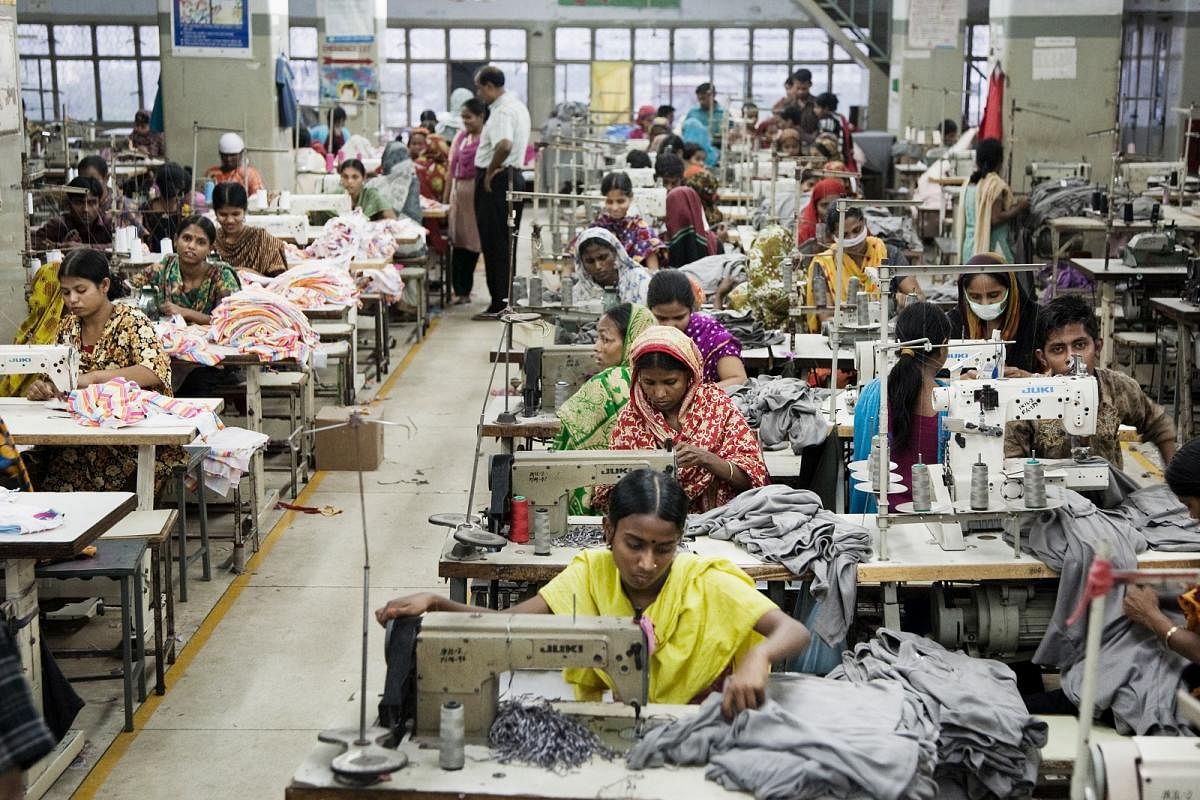
Garment factories are forcing their employees to resign in big numbers, according to a report produced by two Bengaluru organisations.
The Garment and Textile Workers’ Union and Alternative Law Forum recently released a report titled ‘Forced Resignations, Stealthy Closures’, which documents what happened in Bengaluru in the second half of 2020.
Bengaluru houses about 2.5 lakh of the four lakh garment workers in the state, and women account for nearly 72 per cent of the total workforce.
The garment industry is one of the few that don’t require any educational qualifications. After spending years working there, looking for a new job in a new industry seems impossible for many.
Unfair practices
While job loss has been a part-and-parcel of the pandemic, managements have used unfair practices to close factories overnight, according to the report.
The department of factories and boilers says 65 factories were recorded as closed down during the pandemic, leading to over 10,000 workers losing their jobs.
Workers in 17 of the 25 factories surveyed said they had been asked to resign because of losses suffered by their employers.
Managements told workers their dues would not be paid if they did not resign immediately.
They also stopped transport and transferred workers, leaving them with no choice but to resign.
These resignations were seen as voluntary, which allowed management to bypass the legally mandated requirement to pay retrenchment or closure compensation. “There has been no effort from the labour department to inspect or enquire about these mass resignations,” says Prathibha R, speaking for the union.
The practice is not new and has been used by the garment industry for 40 years. The pandemic simply legitimised it, she says. The purpose of the report, she adds, is to document these cases for the government to act.
“Workers were afraid that they would not get their dues if they didn’t resign,” says Swathi Shivanand, ALF.
The concept of ‘forced resignation’ is neither recognised nor defined by the labour department, which makes it difficult for the workers to get legal help. “We need the labour department to acknowledge that this is an unfair practice and look into mass resignations,” she says. Each factory has a labour inspector, yet when workers resign in large numbers no enquiry takes place, the union says. Unemployment is a social issue, which is why laws are in place to ensure that the impact on the household is reduced.
“Employers and factory owners have the right to shut down their businesses, but they have to follow the process of law and give workers compensation,” she says.
Workers in the study reported great distress during the period of unemployment. Their spouses mostly worked in the informal sector and had either lost their jobs or seen their wages reduce significantly.
In June 2020, major exporter Gokaldas Exports shut down one of its factories in Srirangapatna. This led to 1,300 garment workers being laid off. The workers protested and were eventually given their jobs back in February 2021.
The union was actively involved in the effort. “What workers need is wages. They don’t want handouts.... 40 to 50 per cent of women employees belong to single woman-headed households. The job loss puts them in a desperate situation,” says Prathibha.
Bengaluru hub
Nearly 80 per cent of the state’s garment factories are located in Bengaluru Urban district. The total garment workforce in the district is about 2.8 lakh, with 72 per cent being women.
65 Garment factories in Karnataka closed during the pandemic
(*Statistics obtained under RTI)
4 lakh Total garment workers in Karnataka
950 Garment factories in Karnataka